Fleurs du Mal Magazine


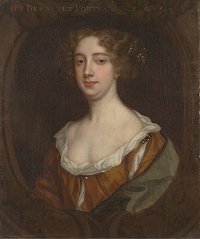
Aphra Behn
(1640 – 1689)
The Dream
All trembling in my arms Aminta lay,
Defending of the bliss I strove to take;
Raising my rapture by her kind delay,
Her force so charming was and weak.
The soft resistance did betray the grant,
While I pressed on the heaven of my desires;
Her rising breasts with nimbler motions pant;
Her dying eyes assume new fires.
Now to the height of languishment she grows,
And still her looks new charms put on;
Now the last mystery of Love she knows,
We sigh, and kiss: I waked, and all was done.
`Twas but a dream, yet by my heart I knew,
Which still was panting, part of it was true:
Oh how I strove the rest to have believed;
Ashamed and angry to be undeceived!
Aphra Behn poetry
fleursdumal.nl magazine
More in: Archive A-B, CLASSIC POETRY
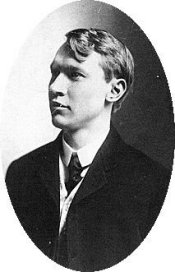
Vachel Lindsay
(1879-1931)
Abraham Lincoln Walks At Midnight
It is portentous, and a thing of state
That here at midnight, in our little town
A mourning figure walks, and will not rest,
Near the old court-house pacing up and down,
Or by his homestead, or in shadowed yards
He lingers where his children used to play,
Or through the market, on the well-worn stones
He stalks until the dawn-stars burn away.
A bronzed, lank man! His suit of ancient black,
A famous high top-hat and plain worn shawl
Make him the quaint great figure that men love,
The prairie-lawyer, master of us all.
He cannot sleep upon his hillside now.
He is among us:— as in times before!
And we who toss and lie awake for long
Breathe deep, and start, to see him pass the door.
His head is bowed. He thinks on men and kings.
Yea, when the sick world cries, how can he sleep?
Too many peasants fight, they know not why,
Too many homesteads in black terror weep.
The sins of all the war-lords burn his heart.
He sees the dreadnaughts scouring every main.
He carries on his shawl-wrapped shoulders now
The bitterness, the folly and the pain.
He cannot rest until a spirit-dawn
Shall come;—the shining hope of Europe free:
The league of sober folk, the Workers’ Earth,
Bringing long peace to Cornland, Alp and Sea.
It breaks his heart that kings must murder still,
That all his hours of travail here for men
Seem yet in vain. And who will bring white peace
That he may sleep upon his hill again?
Vachel Lindsay poetry
fleursdumal.nl magazine
More in: Archive K-L, CLASSIC POETRY, Lindsay, Vachel
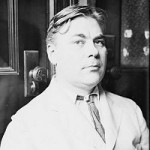
Don Marquis
(1878 – 1937)
In Mars, What Avatar?
“In Vishnu-land, what avatar?”
—BROWNING.
Perchance the dying gods of Earth
Are destined to another birth,
And worn-out creeds regain their worth
In the kindly air of other stars—
What lords of life and light hold sway
In the myriad worlds of the Milky Way?
What avatars in Mars?
What Aphrodites from the seas
That lap the plunging Pleiades
Arise to spread afar
The dream that was the soul of Greece?
In Mars, what avatar?
Which hundred moons are wan with love
For dull Endymions?
Which hundred moons hang tranced above
Audacious Ajalons?
What Holy Grail lures errants pale
Through the wastes of yonder star?
What fables sway the Milky Way?
In Mars, what avatar?
When morning skims with crimson wings
Across the meres of Mercury,
What dreaming Memnon wakes and sings
Of miracles on Mercury?
What Christs, what avatars,
Claim Mars?
Don Marquis poetry
fleursdumal.nl magazine
More in: Archive M-N, CLASSIC POETRY
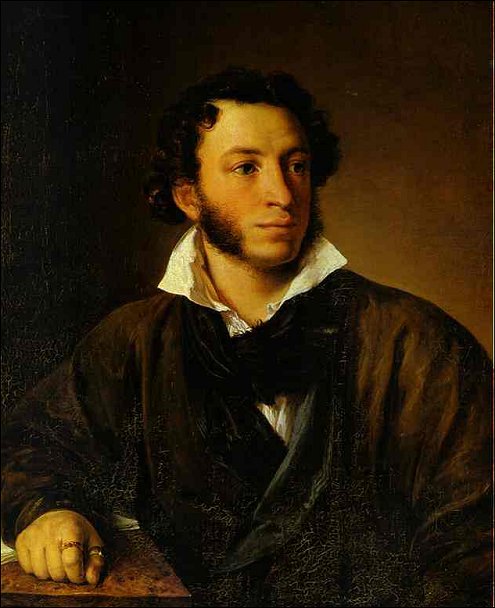
Alexander Pushkin
(1799 – 1837)

fleursdumal.nl magazine
More in: Archive O-P, Poesjkin, Aleksandr
 Hoofdstuk 7 – De middaghitte drukte loodzwaar op het plein en hield de mensen in bedwang, behalve de jongen, die zich niet om de rust van de kraaien bekommerde en luidkeels begon te gillen. De vrouwen waren verstoord omdat hij hen uit hun versuffing had gehaald, maar ze waren ook verontrust omdat zijn toestand weer verslechterde. Ze groepten rond hem samen en zagen dat hij in een toestand van kramp verkeerde. Zijn spieren leken hem uit elkaar te trekken, alsof hij gevierendeeld werd.
Hoofdstuk 7 – De middaghitte drukte loodzwaar op het plein en hield de mensen in bedwang, behalve de jongen, die zich niet om de rust van de kraaien bekommerde en luidkeels begon te gillen. De vrouwen waren verstoord omdat hij hen uit hun versuffing had gehaald, maar ze waren ook verontrust omdat zijn toestand weer verslechterde. Ze groepten rond hem samen en zagen dat hij in een toestand van kramp verkeerde. Zijn spieren leken hem uit elkaar te trekken, alsof hij gevierendeeld werd.
De kraaien rekenden erop dat het moment van sterven weldra aanbrak. Het had nu lang genoeg geduurd. De hele ochtend reeds hadden ze bij het bed zitten wachten. Stel je voor dat ze hier tot de avond moesten blijven rondhangen. Een hele dag naar de bliksem voor een kind op wie eigenlijk niemand van hen gesteld was. Een zoon van de timmerman bovendien, een kerel die minder om zijn zoon gaf dan om een kruik jenever. De kraaien waren het erover eens dat het in ieder geval hoog tijd werd om het kind de genade der stervenden te laten toedienen. Een van hen werd naar de pastorie gestuurd. Andrade moest al zijn energie bij elkaar rapen om zich aan zijn plicht te wijden. Nog half slapend kwam hij naar buiten. Voor driekwart in superplie. Daaronder ging hij, ondanks de middaghitte, in een wollen toog gehuld. In zijn handen droeg hij flesjes olie en wijwater. Om hem heen hing niet alleen de zaligmakende geur van kaarsen en wierook, waarvoor de mensen veel respect hadden, maar vooral de lucht van wijn. Desondanks zag hij er veelgeplaagd uit. Hij liet duidelijk zijn afkeer merken van dit kind, dat op het heetst van de dag te kennen gaf dat het ging sterven. Waarom niet vroeger of later? Waarom wachtte de jongen niet tot het wat koeler zou zijn? Het viel waarachtig niet mee bij deze hitte uit de koelte van de pastorie te worden gesleurd om een jongen bij te staan in zijn strijd met de dood. Nu de jongen toch echt dood leek te gaan, werd van de pastoor verwacht dat hij de ziel van het kind op weg zou helpen naar een andere wereld. In het gunstigste geval naar een betere. Of zelfs naar de hemel. Zijn lichaam zou in elk geval een eigen plekje op de achter de kerk gelegen dodenakker vinden. Tussen de groene linden, waar al hele generaties inwoners van Solde te ruste waren gelegd, in afwachting van het Laatste Oordeel. Joachim Andrade verwenste de kraaien. Niet omdat hij een hekel aan hen had, maar omdat ze hem uit zijn slaap hadden gehaald. Met die wijven had je altijd wat. En dat hele gedoe van het ontvangen der sacramenten der stervenden had maar weinig zin.
Hij, de pastoor zelf, had nooit enig positief resultaat gezien als gevolg van dit magische ritueel. En zo dat al het geval was geweest, bijvoorbeeld bij opoe Ramesz, die reeds een keer of drie op de drempel van de dood had gestaan, was het resultaat toch ook eigenlijk alleen maar negatief. Wat had dat mens eraan om in leven te blijven? Geen bal. Dat wijfje zat daar maar. Meer dood dan levend. Net een opgezet beest. Waarschijnlijk was ze telkens weer tot leven gekomen omdat ze voor de ontvangst van het sacrament grondig onder handen was genomen door de kraaien. Die hadden haar gewassen en verschoond, waardoor haar bloed weer sneller was gaan stromen. Meer dan de genademiddelen hadden water en zeep haar afgeleefde lijf weer tot leven gewekt. Met zijn kop rood van de drank en met het zweet op zijn voorhoofd struikelde de pastoor herhaaldelijk over de zoom van zijn toog. Met de grootste moeite hield hij de ampullen met olie en wijwater rechtop. Hij ging niet recht op het ziekbed toe, maar liep laverend als een dronken matroos.
Ton van Reen: Landverbeuren (41)
wordt vervolgd
fleursdumal.nl magazine
More in: - Landverbeuren, Reen, Ton van
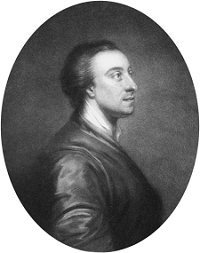
Mark Akenside
(1721 – 1770)
Hymn To Science
Science! thou fair effusive ray
From the great source of mental day,
Free, generous, and refin’d!
Descend with all thy treasures fraught,
Illumine each bewilder’d thought,
And bless my lab’ring mind.
But first with thy resistless light,
Disperse those phantoms from my sight,
Those mimic shades of thee;
The scholiast’s learning, sophist’s cant,
The visionary bigot’s rant,
The monk’s philosophy.
O! let thy powerful charms impart
The patient head, the candid heart,
Devoted to thy sway;
Which no weak passions e’er mislead,
Which still with dauntless steps proceed
Where Reason points the way.
Give me to learn each secret cause;
Let number’s, figure’s, motion’s laws
Reveal’d before me stand;
These to great Nature’s scenes apply,
And round the globe, and thro’ the sky,
Disclose her working hand.
Next, to thy nobler search resign’d,
The busy, restless, human mind
Thro’ ev’ry maze pursue;
Detect Perception where it lies,
Catch the ideas as they rise,
And all their changes view.
Say from what simple springs began
The vast, ambitious thoughts of man,
Which range beyond control;
Which seek Eternity to trace,
Dive thro’ th’ infinity of space,
And strain to grasp the whole.
Her secret stores let Memory tell,
Bid Fancy quit her fairy cell,
In all her colours drest;
While prompt her sallies to control,
Reason, the judge, recalls the soul
To Truth’s severest test.
Then launch thro’ Being’s wide extent;
Let the fair scale, with just ascent,
And cautious steps, be trod;
And from the dead, corporeal mass,
Thro’ each progressive order pass
To Instinct, Reason, God.
There, Science! veil thy daring eye;
Nor dive too deep, nor soar too high,
In that divine abyss;
To Faith content thy beams to lend,
Her hopes t’ assure, her steps befriend,
And light her way to bliss.
Then downwards take thy flight agen;
Mix with the policies of men,
And social nature’s ties:
The plan, the genius of each state,
Its interest and its pow’rs relate,
Its fortunes and its rise.
Thro’ private life pursue thy course,
Trace every action to its source,
And means and motives weigh:
Put tempers, passions in the scale,
Mark what degrees in each prevail,
And fix the doubtful sway.
That last, best effort of thy skill,
To form the life, and rule the will,
Propitious pow’r! impart:
Teach me to cool my passion’s fires,
Make me the judge of my desires,
The master of my heart.
Raise me above the vulgar’s breath,
Pursuit of fortune, fear of death,
And all in life that’s mean.
Still true to reason be my plan,
Still let my action speak the man,
Thro’ every various scene.
Hail! queen of manners, light of truth;
Hail! charm of age, and guide of youth;
Sweet refuge of distress:
In business, thou! exact, polite;
Thou giv’st Retirement its delight,
Prosperity its grace.
Of wealth, pow’r, freedom, thou! the cause;
Foundress of order, cities, laws,
Of arts inventress, thou!
Without thee what were human kind?
How vast their wants, their thoughts how blind!
Their joys how mean! how few!
Sun of the soul! thy beams unveil!
Let others spread the daring sail,
On Fortune’s faithless sea;
While undeluded, happier I
From the vain tumult timely fly,
And sit in peace with thee.
Mark Akenside poetry
fleursdumal.nl magazine
More in: Archive A-B, CLASSIC POETRY
26 juni 2015 – Martin Beversluis wordt de nieuwe Stadsdichter van Tilburg. De officiële installatie is op 30 augustus tijdens Boeken rond het Paleis.
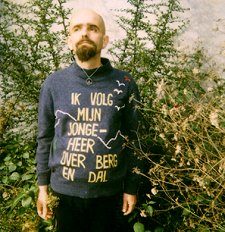 Martin Beversluis is voorgedragen door de stadsdichterscommissie (die bestaat uit Ingrid Luycks, Ingrid Ramaan, Jef van Kempen en Wilbert van Herwijnen). Het college heeft deze voordracht overgenomen.
Martin Beversluis is voorgedragen door de stadsdichterscommissie (die bestaat uit Ingrid Luycks, Ingrid Ramaan, Jef van Kempen en Wilbert van Herwijnen). Het college heeft deze voordracht overgenomen.
Tilburg heeft sinds 2003 een stadsdichter. Om de 2 jaar benoemt het college een nieuwe dichter. Op dit moment is Jasper Mikkers stadsdichter. Hij neemt op 30 augustus afscheid. Eerder waren JACE van de Ven, Nick J. Swarth, Frank van Pamelen, Cees van Raak en Esther Porcelijn stadsdichter van Tilburg.
Wethouder Marcelle Hendrickx: “Martin Beversluis is een gedreven dichter die ook echt het podium durft te pakken. Hij legt mooie en verrassende verbindingen met muziek. En dat past uitstekend bij een stad die zich juist met podiumkunsten wil profileren.”
Moeder
Het zal zo tussen
Twee en half drie
Geweest zijn toen
Moeder opeens een
Zucht slaakte en zich
Afvroeg waar de echte
Wereld eindigde en
Haar kaartspel begon
Zij speelt in haar eentje
Patience speelt patience
In haar eentje op de veranda
Zij vindt eerder herinneringen
dan troost in het spel haar
Glanzende lippen lispelen af en
Toe een woord als kutkaarten
Godver weer niet of mooi maar
Dan spottend ook het zonlicht
kan haar niet raken als zij daar
niet zelf om gevraagd heeft.
De kaarten schudt moeder
Met een onvaste hand
Benieuwd welke kaart
Openvalt of verborgen
Blijft aangevallen door
Vliegen en muggen verdedigd
Door een eenzame mot
Dan tekent ze haar kinderen
Een handzaam vermaak
Het houdt de sleur weg
Het vastleggen haalt de
sleur weg de kaarten
Verdrijven moeder’s
Stemming naar buiten
De oeroude wetten van
Tevredenheid tot huilt
van godweetwaar en wie
Vermoedt of viert dat wat
Binnenin haar schuilt?
Martin Beversluis (Vlaardingen, 1972) debuteerde in 1995 met de bundel ‘De Zeisloper’. Als dichter speelde hij in de band Listening Principles en werkte hij samen met kunstenaar John Dohmen. Uit deze samenwerking ontstonden de bundels ‘Rijpen onder invloed’ (2005) en ‘Blauw van jou’ (2007). Sinds 2007 maakt Beversluis furore als slamdichter. In 2009 stond hij in de finale van het Nederlands Kampioenschap Poetry Slam, in 2011 wist hij de halve finale te bereiken. In datzelfde jaar presenteerde Beversluis zijn zevende bundel ‘Talisman’. Een jaar later zag de minibundel ‘Tijdreis’ het licht. Wegens zijn twintigjarig dichterschap verscheen in januari 2015 zijn jubileumbundel ‘De liefde begonnen’. Behalve als deelnemer is Beversluis ook actief als organisator van Poetry Slams, zoals het Tilburgse Podiumvlees Poetry Slam in samenwerking met Daan Taks.
# Meer gedichten van Martin Beversluis op deze website: fleursdumal.nl magazine
# Meer informatie over Martin Beversluis op zijn website: beversluis.com
fleursdumal.nl magazine
More in: Archive A-B, Art & Literature News, Beversluis, Martin, City Poets / Stadsdichters
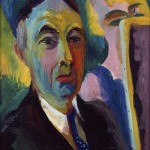
Hendrik Nicolaas Werkman
(1882-1945)
Loemoem lammoem laroem lakoem
Loemoem lammoem laroem lakoem
bergamotse pergolas
boestroem bastroem bestroem bostroem
arboesti arboesas
oemoem ammoem aroem akoem
postolorum postolas
akroem baroem fakroem faroem
synagobi syncopas
oeloem aloem oesdroem nosdroem
akolasi rabotas
oeldroes knoeldroes boeldroes moeldroes
pastellorum crammacas
oemboem hoemboem zoemboem boemboem
castranorum castrafas
Hendrik Nicolaas Werkman poetry
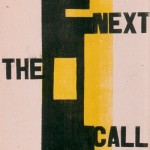
fleursdumal.nl magazine
More in: Archive W-X, De Ploeg, Hendrik Nicolaas Werkman, Werkman, Hendrik Nicolaas
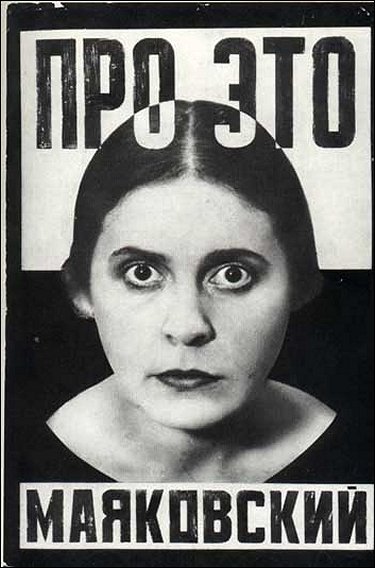
VLADIMIR MAJAKOVSKY (1893-1930)
А вы могли бы?
Я сразу смазал карту будня,
плеснувши краску из стакана;
я показал на блюде студня
косые скулы океана.
На чешуе жестяной рыбы
прочел я зовы новых губ.
А вы
ноктюрн сыграть
могли бы
на флейте водосточных труб?
1913
More in: Archive M-N, Majakovsky, Vladimir
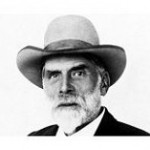
Robert Bridges
(1844 – 1930)
Melancholia
The sickness of desire, that in dark days
Looks on the imagination of despair,
Forgetteth man, and stinteth God his praise;
Nor but in sleep findeth a cure for care.
Incertainty that once gave scope to dream
Of laughing enterprise and glory untold,
Is now a blackness that no stars redeem,
A wall of terror in a night of cold.
Fool! thou that hast impossibly desired
And now impatiently despairest, see
How nought is changed: Joy’s wisdom is attired
Splended for others’ eyes if not for thee:
Not love or beauty or youth from earth is fled:
If they delite thee not, ’tis thou art dead.
Robert Bridges poetry
fleursdumal.nl magazine
More in: Archive A-B, Bridges, Robert
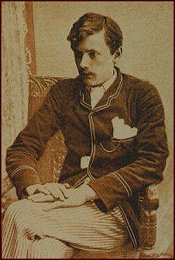
Ernest Dowson
(1867-1900)
Exchanges
All that I had I brought,
Little enough I know;
A poor rhyme roughly wrought,
A rose to match thy snow:
All that I had I brought.
Little enough I sought:
But a word compassionate,
A passing glance, or thought,
For me outside the gate:
Little enough I sought.
Little enough I found:
All that you had, perchance!
With the dead leaves on the ground,
I dance the devil’s dance.
All that you had I found.
Ernest Dowson poetry
fleursdumal.nl magazine
More in: Archive C-D, Dowson, Ernest
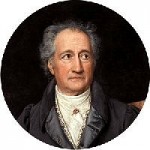
Johann Wolfgang von Goethe
(1749-1832)
Dämmrung senkte sich von oben
Dämmrung senkte sich von oben,
Schon ist alle Nähe fern;
Doch zuerst emporgehoben
Holden Lichts der Abendstern!
Alles schwankt ins Ungewisse,
Nebel schleichen in die Höh;
Schwarzvertiefte Finsternisse
Widerspiegelnd ruht der See.
Nun im östlichen Bereiche
Ahnd ich Mondenglanz und -glut,
Schlanker Weiden Haargezweige
Scherzen auf der nächsten Flut.
Durch bewegter Schatten Spiele
Zittert Lunas Zauberschein
Und durchs Auge schleicht die Kühle
Sänftigend ins Herz hinein.
Johann Wolfgang von Goethe poetry
fleursdumal.nl magazine
More in: Archive G-H, Goethe, Johann Wolfgang von
Thank you for reading Fleurs du Mal - magazine for art & literature